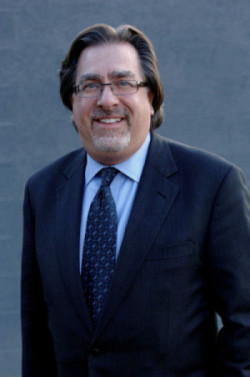 By William Sarni, Director and Practice Leader, Enterprise Water Strategy, Deloitte
By William Sarni, Director and Practice Leader, Enterprise Water Strategy, Deloitte
The very successful 2014 Stockholm World Water Week (SWWW) has come to a close. The event broke attendance records with over 3,000 participants from industry, academia, nongovernmental organizations, and governmental institutions across the world.
This year’s theme was “Energy and Water” in recognition that these two resource issues are inseparable, though the event also focused on the intersection of water with ecosystems, agriculture, and the urban environment. I was fortunate to have participated in several workshops, including a session on “Water, Energy, Food, and Ecosystem Security.” In many ways, this workshop framed the theme of the week and identified some of the key challenges.
Water is essential for producing food, generating energy, and maintaining ecosystems. Participants recognized that society must increase resilience and productivity to guard against drought and other extreme weather events. They also recognized that we need to address the potential for synergies and reconcile tradeoffs among water, energy, food, and ecosystems. A “new normal” has emerged, requiring a paradigm shift in the way we handle nexus problems.
Some of the conclusions coming out of the workshop:
- A move to proactive, rather than reactive, public policies must come from a broader debate among stakeholders. For example, the agricultural sector copes with weather variability, but the weather extremes of the “new normal” require new planning and decision support tools. These can include early warning systems and better water pricing (to align with value).
- Industry sectors should develop stronger interconnections to more effectively address the water, energy, food, and ecosystem nexus. For example, hydropower development projects can affect the agricultural sector within a shared watershed. It is essential that local institutions identify and manage water resources sustainably, and this increasingly requires trans-boundary collaboration. Institutional frameworks need to be put in place, recognizing that imperfect institutions are better than no institutions at all. Relevant institutions should prioritize collecting and granting access to ecosystem data. Doing so can more broadly reveal the importance of ecosystems for robust and integrated socioeconomic development. The Mekong River Commissionserves as a model of how organizations are developing integrated thinking towards water, energy, food, and ecosystems.
- The private sector needs clear regulatory frameworks that create room for new business models and incentivize partnerships for technical and social innovation. Businesses should strive to improve their sustainability performance against ambitious benchmarks along supply chains. In addition, better access to novel products and practices in the developing world (such as micro-hydropower for irrigation) will help low-income users capitalize on nexus benefits that are currently most readily adopted by middle-income users.
The workshop highlighted society’s progress on water, energy, and food issues in recent years. Much of this success has come from improved metrics and measurement tools, but ecosystem health and services are still difficult to quantify. It is encouraging that nexus solutions are increasingly spanning resource sectors to address the “new normal” and bring about “no regrets” options for all stakeholders (A notable presentation from SWWW on this topic was “The Mekong Basin: Trade-Offs between Energy, Food and Water” by Pittock, Orr, and Dumaresq).
I encourage everyone to follow post-meeting communications coming from the “Water, Energy, Food, and Ecosystem Security” workshop and the other sessions through the Stockholm International Water Institute publication “On the Waterfront” and look towards next year’s event.
William Sarni provides water strategy services to private and public-sector enterprises with a focus on evaluating and mitigating business value at risk from water risks and identifying business opportunities to address these risks. He is the author of Corporate Water Strategies (Earthscan, 2011; and in Chinese by Shanghai Jiao Tong University Press, 2013) and Water Tech: A Guide to Innovation Investment, and Business Opportunities in the Water Sector (Routledge, 2013). He is currently working on 21st Century Growth: Beyond the Energy-Water-Food Nexus (Dō Sustainability, 2014).
About Deloitte
Deloitte refers to one or more of Deloitte Touche Tohmatsu Limited, a UK private company limited by guarantee, and its network of member firms, each of which is a legally separate and independent entity. Please see www.deloitte.com/about for a detailed description of the legal structure of Deloitte Touche Tohmatsu Limited and its member firms. Please see www.deloitte.com/us/about for a detailed description of the legal structure of Deloitte LLP and its subsidiaries. Certain services may not be available to attest clients under the rules and regulations of public accounting.
This publication contains general information only and is based on the experiences and research of Deloitte practitioners. Deloitte is not, by means of this publication, rendering business, financial, investment, or other professional advice or services. This publication is not a substitute for such professional advice or services, nor should it be used as a basis for any decision or action that may affect your business. Before making any decision or taking any action that may affect your business, you should consult a qualified professional advisor. Deloitte, its affiliates, and related entities shall not be responsible for any loss sustained by any person who relies on this publication.
